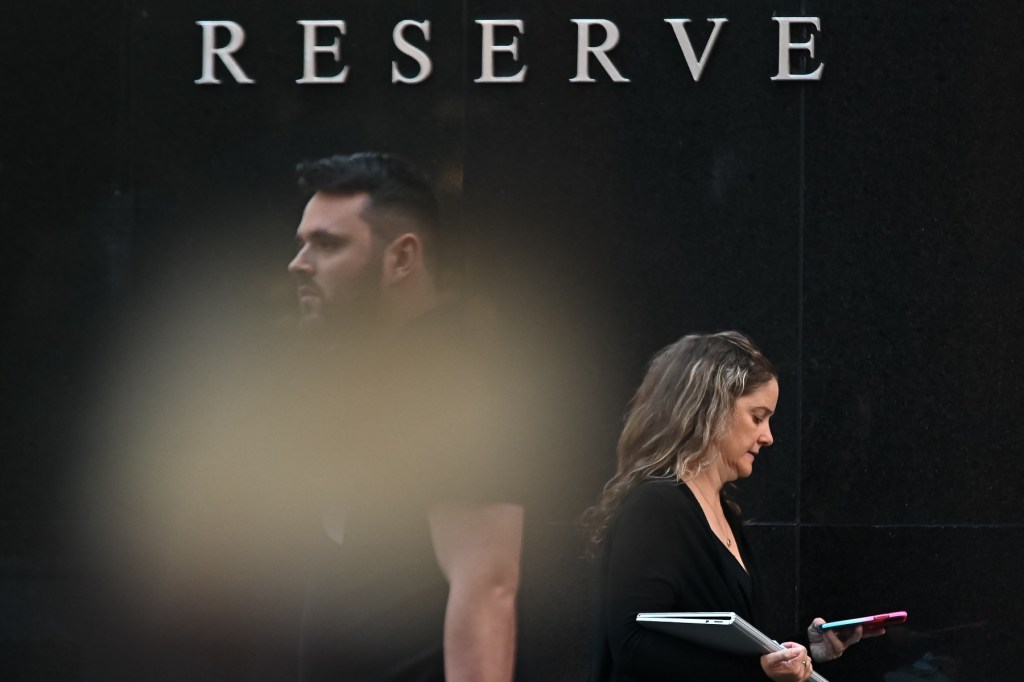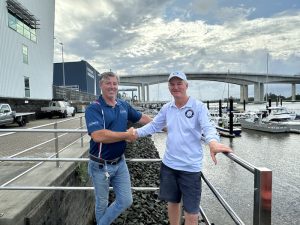PwC chief’s $1.2m bonus kept ‘secret for more than a year’, inquiry told

- by Admin
- August 2, 2024

The chief executive of PwC Australia, Kevin Burrowes, received a $1.2m payment from the consulting company’s international arm which he did not initially reveal to the parliamentary inquiry into the 2015 leaking of confidential government tax reform information.
A parliamentary inquiry was told on Friday that Burrowes first told the corporations and financial services committee that he was paid an annual salary of $2.4m. That was later corrected to $2.8m.
However, he did not disclose the additional $1.2m income from PwC international until a June meeting of partners this year, about 12 months after he took up the Australian role, as reported by the Australian Financial Review. Burrowes said his current annual salary was $3.2m.
During a grilling of PwC on Friday, the committee chair, Senator Deborah O’Neill, told Burrowes that he had kept the extra payment “secret for more than a year … [It] looks very deceptive to me”.
Burrowes told the committee: “I feel there has been a misunderstanding” about the additional salary. “[You] probably won’t agree with what I’m going to say, but we have been extraordinarily transparent with you. We have answered hundreds of questions.”
He said he had provided services to “20 to 30” global clients for that payment.
The inquiry was set up last year in the wake of the scandal breaking in 2022 involving a former partner, Peter-John Collins, who revealed multinational tax reforms being drawn up by the Abbott government in 2015 to corporate clients.
O’Neill told Burrowes his “decision to accept payment from two masters is replete with a conflict of interest”.
Jan McCahey, PwC’s chief risk and ethics leader, told the inquiry she only learned of the $1.2m on 20 June this year, about 11 months after Burrowes formally took up his new role.
“I was surprised to learn of it at the time,” she told the inquiry. “Probably something like, ‘that’s news to me’.”
Committee members, including the Liberal senator Paul Scarr and the Liberal MP Alex Hawke, also pressed Burrowes about why PwC had not handed over a report commissioned by the firm from Linklaters to examine the role of international partners in the tax leak.
O’Neill said it was “completely intolerable” that PwC had not handed over that report.
Burrowes said it “wasn’t mine to provide the report” and he had “made several requests” for it but his main role was to focus on repairing the firm’s reputation in Australia.
He said the report was “not pertinent to what we’re trying to do in Australia”, and repeated claims made prior to today’s hearing that he had not read it.
In a statement last September, PwC said Linklaters had “found no evidence that any PwC personnel outside Australia used confidential information from PwC Australia for commercial gain”.
“With respect to those PwC people who did receive confidential information from PwC Australia, most did not know the information was confidential,” PwC said.
“However, the review found that six individuals should have raised questions as to whether the information was confidential. To the extent that they are still with PwC, their firms have taken appropriate action.”
In later evidence to the inquiry, the former PwC Australia chief Tom Seymour said a “side payment” from PwC global in his time at the firm would have been “highly irregular”. He added he would “be guessing” why the international arm had not released its report.
The inquiry also examined Seymour’s rise to the top role in March 2020, drawing a comment from former general counsel Meredith Beattie that she had voted against his appointment.
Beattie also told then CEO Luke Sayers there would “have to be some steps taken in relation to Mr Seymour” over his leadership of PwC’s tax group.
Sayers, in his evidence, said he had no recollection of such advice.
after newsletter promotion
O’Neill said it was “unfathomable” that partners didn’t get to hear from their independent legal counsel on the CEO selection.
Seymour won the two-horse race but resigned in 2023 when it became public he was one of dozens of partners who received emails about the confidential tax leak by former adviser Collins.
O’Neill said PwC’s handling of the leadership in the wake of the scandal “sounds like some dangerous inside boys club where they cover each other over”.
Seymour, who also departed PwC last year, said he had not been told of his unsuitability for the top job. Had he been told he was “not a suitable candidate”, Seymour – a 30-year PwC veteran – “would have withdrawn immediately”.
In a testy afternoon session, Sayers was asked about what notes he might have taken of conversations with ATO second commissioner Jeremy Hirschhorn.
Asked if he had been explicitly told by Hirschhorn about a breach of confidence, Sayers said: “Did he drop a few breadcrumbs? … I don’t remember it.
“Could he have? Maybe he did. But the one thing I’ll guarantee you, whatever he told me, I would have gone back and talked to the people at PwC,” he said, adding Hirschhorn “had been waxing lyrical” about the firm’s culture.
As Hirschhorn had made a contemporaneous note about the meeting, Sayers was asked if he too had taken notes. He said he did.
In the final session of the day senator O’Neill asked Burrowes if he could find Sayer’s notes. Burrowes said PwC “will go away and have another look”, having failed in previous searches.
Under strain of questioning during his session, Sayers said: “I’m trying to be very constructive and helpful to the fixes that need to happen. So this bloody cluster – I won’t use the full word here in Parliament House – never happens again.”
Ziggy Switkowski, a former senior executive at Telstra, Optus and other companies, also provided evidence about his independent review of PwC’s governance and culture.
Switkowski said PwC governance oversight was “not match fit” and “some sort of volcanic development” occurred as a result.
“The whole organisation is not corrupt,” he said, adding diligent and talented staff had been through a “thoroughly traumatic” event after the tax leak scandal.
Among the lessons was the need to get board and executive structures “right” and to set the “right goals” that were not merely sales and market share, he said. PwC’s bureaucracy was also “overwhelming”, even compared with rivals.
“It not only confuses but disguises problems,” Switkowski said.
The Latest News
-
December 26, 2024Konstas, Kohli mid-pitch shoulder bump under microscope | cricket.com.au
-
December 26, 2024‘Clown behaviour’: Kohli blasted for ‘pathetic’ exchange
-
December 26, 2024Sports News Today Live Updates on December 26, 2024: India vs Australia BGT 2024-25: Sam Konstas shocks India with his remarkable debut | Watch
-
December 26, 2024‘I think he’s in trouble’: Kohli under fire over ‘ridiculous’ clash with Aussie teen as ban looms
-
December 26, 2024WATCH: Kohli bumps Konstas in fiery MCG clash



